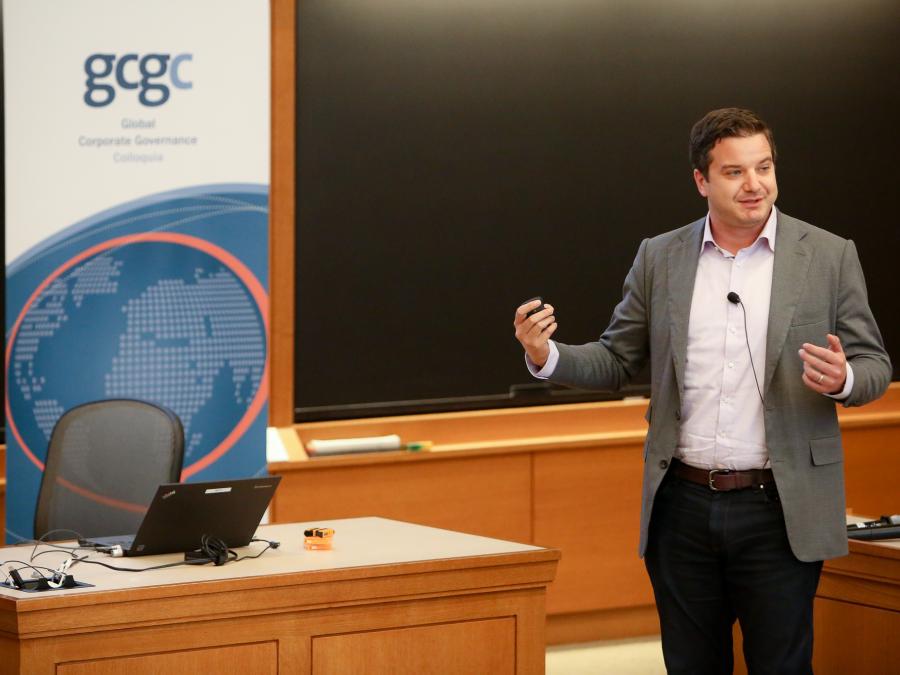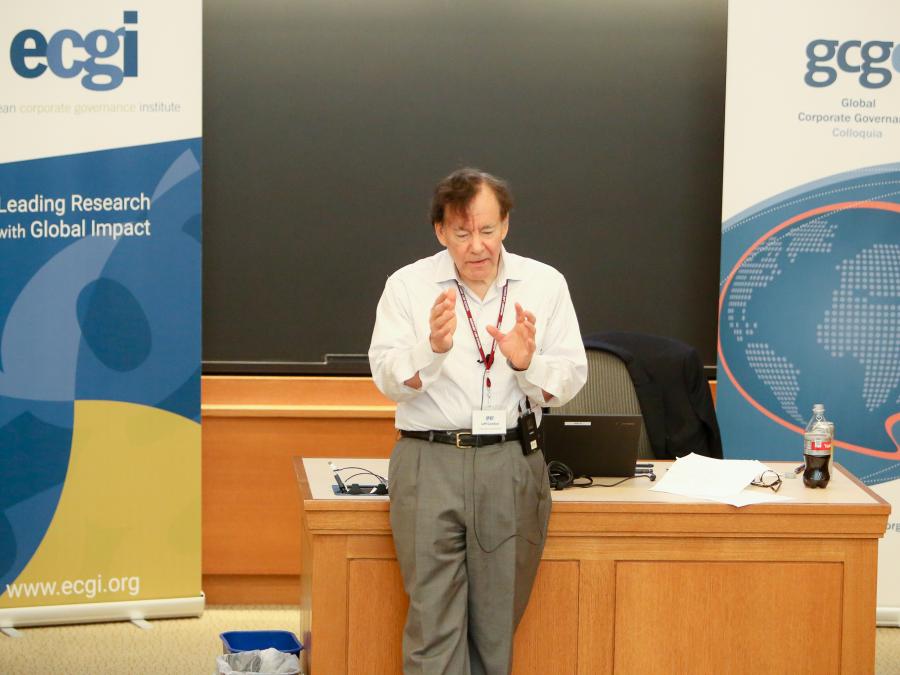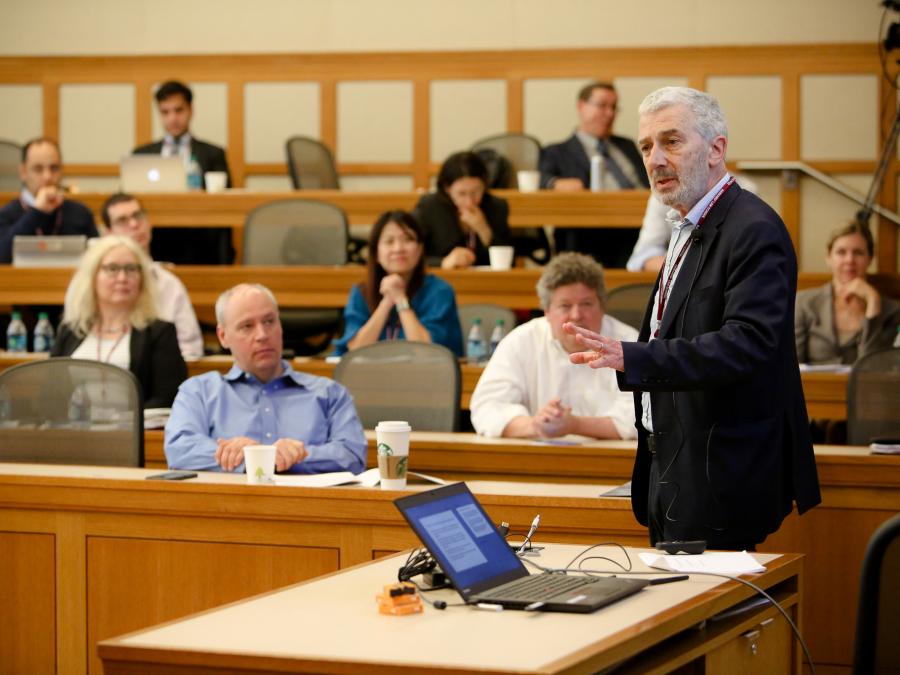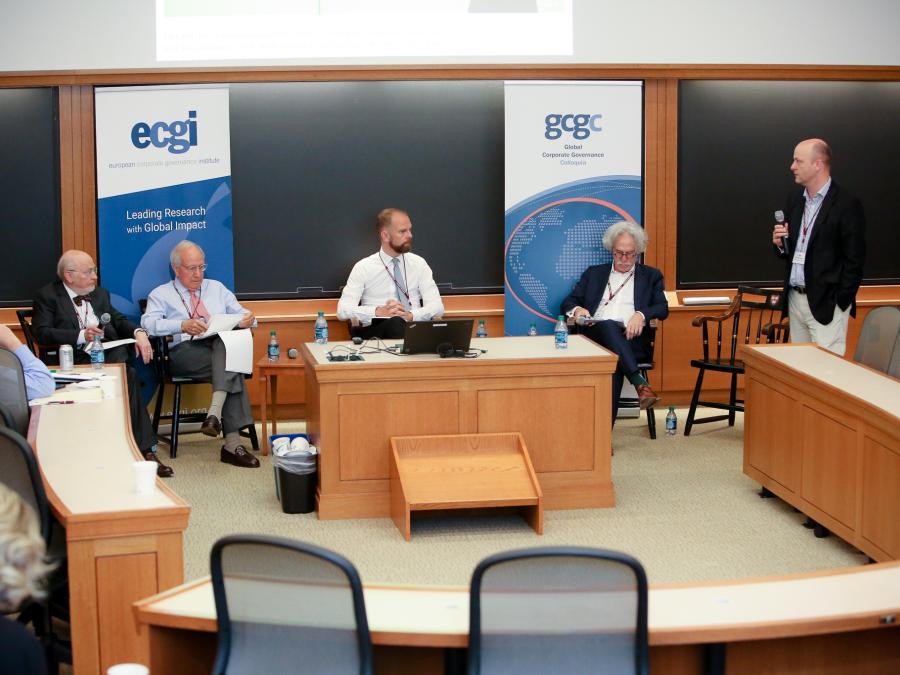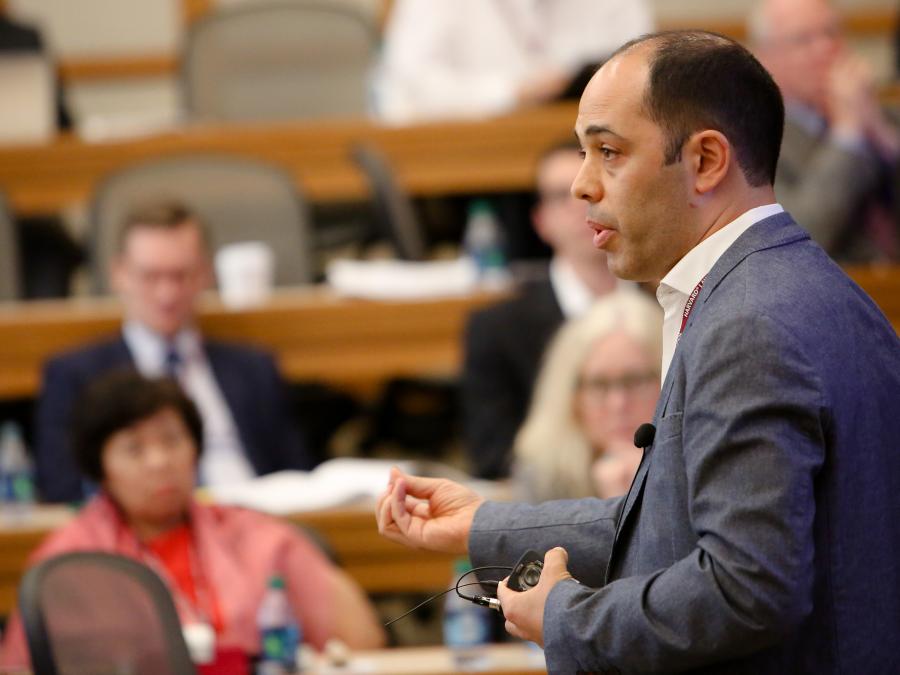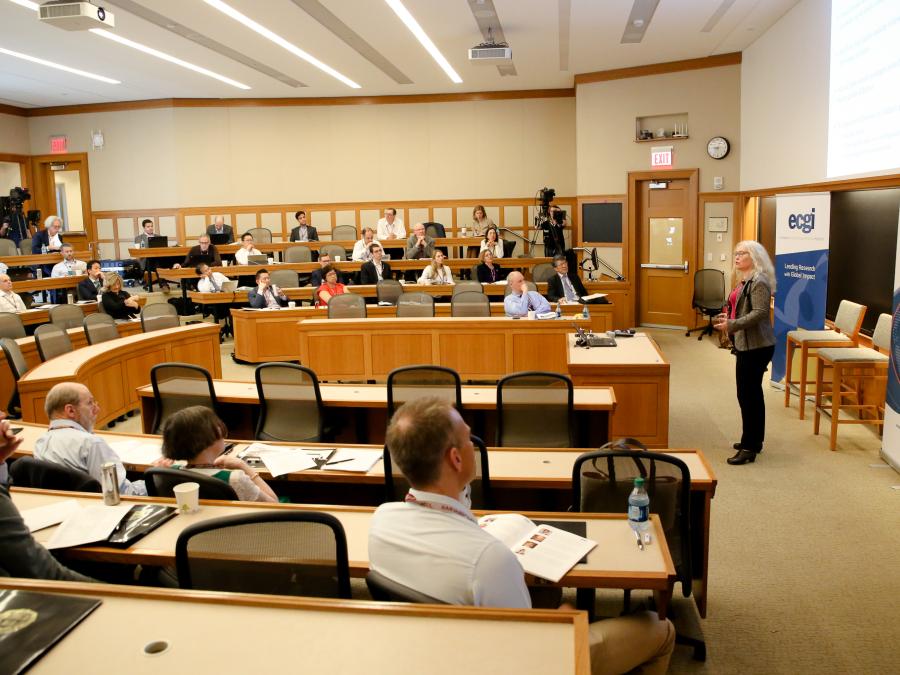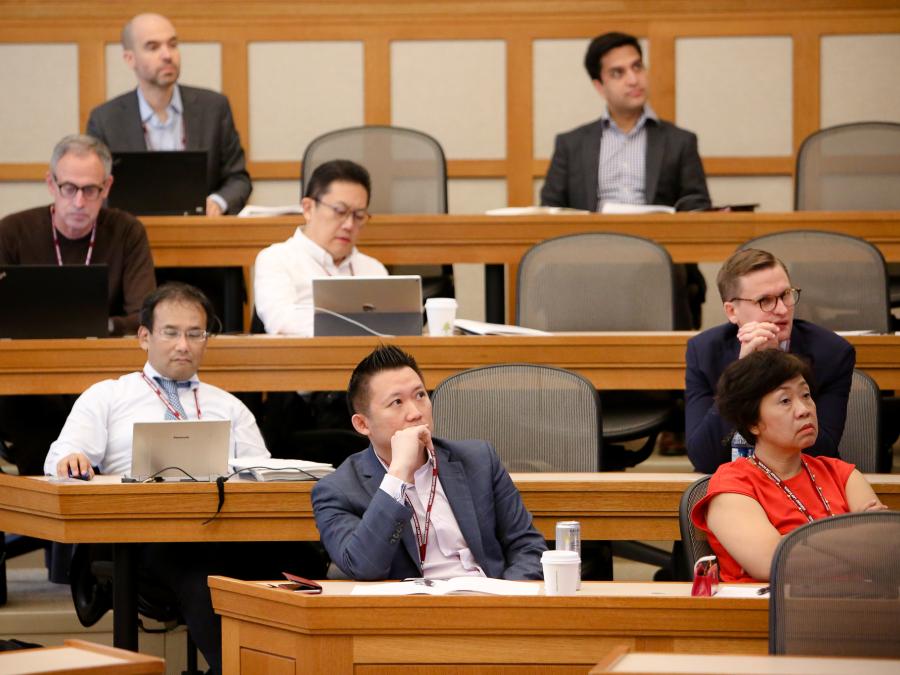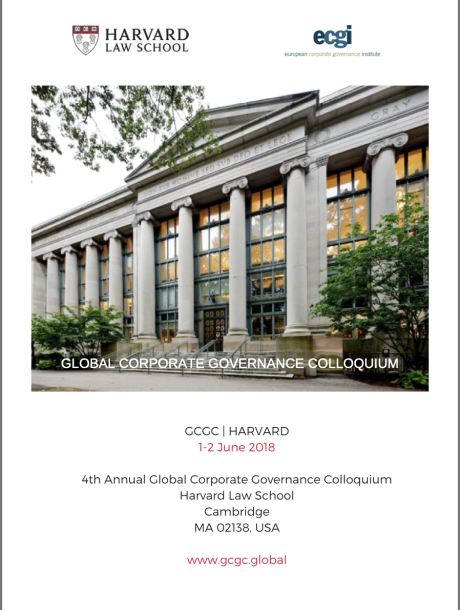

Harvard Law School
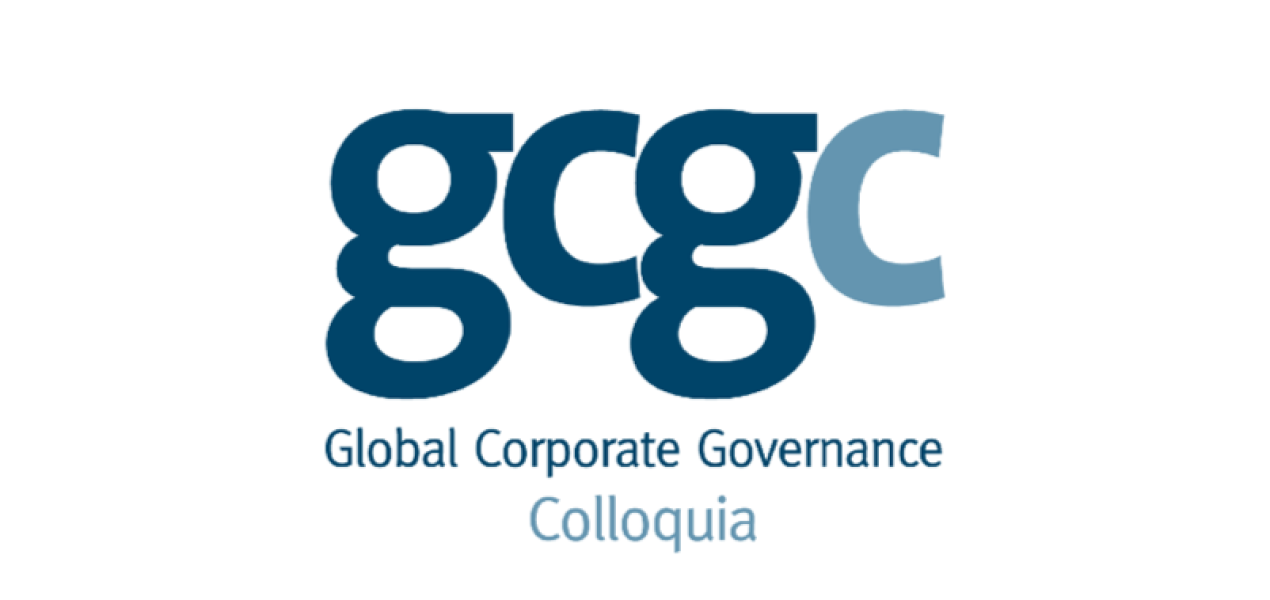
Global Corporate Governance Colloquia
Global Corporate Governance Colloquia (GCGC) 2018
Click here to visit the Global Corporate Governance Colloquia (GCGC) website.
Click here to download the programme (long version here).
Materials from the event (papers, slides, videos) can be found under the 'Presentations' section.
The fourth annual GCGC Conference was hosted by Harvard University on 1 – 2 June 2018.
GCGC 2018, hosted by Harvard Law School, featured papers that explored the evolving roles of institutional investors, corporate boards, and ownership structures in shaping corporate behavior and firm value.
A prominent theme was the influence of institutional investor behavior on corporate governance. Papers such as "Monitoring the Monitor: Distracted Institutional Investors and Board Governance" by Claire Liu, Angie Low, Ronald Masulis, and Le Zhang demonstrated how institutional investor distraction weakens board oversight, reducing directors' monitoring incentives and leading to poorer governance outcomes. This work highlighted the critical role of active investor monitoring in maintaining board effectiveness.
The role of board structure and director busyness also emerged as a significant topic. Alexander Ljungqvist and Konrad Raff’s paper, "Busy Directors: Strategic Interaction and Monitoring Synergies," introduced a nuanced perspective on the impact of busy directors, showing that under certain conditions, having directors serve on multiple boards can be beneficial when monitoring synergies between firms are positive. This challenged the conventional wisdom that busy directors are uniformly detrimental to governance.
Sustainability and corporate social responsibility (CSR) were also key areas of focus. Samuel Hartzmark and Abigail Sussman’s paper, "Do Investors Value Sustainability? A Natural Experiment Examining Ranking and Fund Flows," provided compelling evidence that investors respond positively to high sustainability ratings, with significant capital flows favoring firms with higher ESG scores. This highlights the growing importance of sustainability considerations in investment decisions and corporate strategy.
Ownership structures were explored in several papers, such as "The Perils of Small-Minority Controllers" by Lucian Bebchuk and Kobi Kastiel, which examined the governance risks associated with small-minority controllers in dual-class firms. Their findings suggest that these structures can lead to governance inefficiencies and value destruction, calling into question the long-term viability of such ownership models.
Another key theme was the interaction between governance mechanisms and firm performance in emerging markets. Bernard Black, Hasung Jang, and Woochan Kim’s paper, "Which Aspects of Corporate Governance Matter in Emerging Markets?" explored how governance factors such as disclosure and board structure impact firm value in Brazil, India, Korea, and Turkey, demonstrating that country-specific governance practices often outperform generalized indices in predicting firm performance.
The conference provided novel insights into how corporate governance practices evolve in response to changes in investor behavior, ownership structures, and the increasing importance of sustainability. The research emphasized the complexity of governance dynamics and highlighted the need for context specific approaches to improving firm performance and maintaining effective board oversight.
Programme
Registration
Welcome
Morning Session 1:
Unsuccessful Teams
Speaker(s)
Discussant
Career Risk and Market Discipline in Asset Management
Speaker(s)
Discussant
Coffee Break
Morning Session 2:
Doing Business in Emerging Markets – The Benefits of Being Private
Speaker(s)
Discussant
Lunch Break
Afternoon Session 1:
The Rise of Common Ownership
Speaker(s)
Discussant
Coffee Break
Reception and Dinner
Registration
Introduction
Session 1:
The Perils of Small-Minority Controllers
Speaker(s)
Discussant
Coffee Break
Session 2:
Lunch Break
Coffee Break
Session 3:
Busy Directors: Strategic Interaction and Monitoring Synergies
Speaker(s)
Discussant
Reception
Speakers
Marco Pagano
Bernard Black
Pedro Matos
Charles Wang
Lucian Bebchuk
Jeffrey Gordon
Alexander Ljungqvist
Presentations
Gallery
Contact






















































